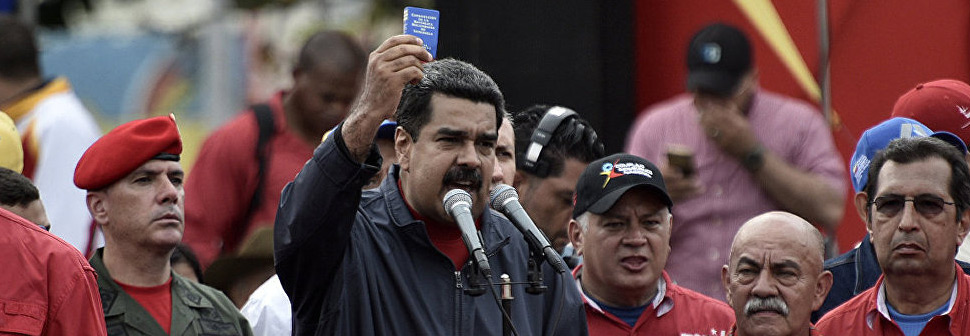A brief analysis on Venezuela’s President call for new constituent body


Speaking at a May Day rally, Mr Maduro said a new constitution was needed “to restore peace” and stop the opposition from carrying out a “coup d’etat”.
He decreed that a citizens’ assembly be convened to write the new document.
Opposition leaders said the move was aimed at neutralising the opposition-led legislature, the National Assembly.
What happened?
Speaking to thousands of his supporters, President Maduro said he would use his presidential power to convene a constituent assembly.
He later issued a decree to that effect.
Under the existing constitution, “the people of Venezuela” can “convene a constituent assembly with the aim of transforming the state, creating a new legal framework and writing a new constitution”.
Mr Maduro said that as president he was invoking that power in the name of the Venezuelan people.
Why did he do it?
Venezuela is embroiled in a deep economic and political crisis. Over the past four weeks, there have been almost daily protests by those who blame President Maduro for the dire state of Venezuela’s economy and who want him gone from power.
Almost 30 people have been killed in protest-related violence since the beginning of April.
Even as the president was speaking, police and anti-government protesters clashed in other parts of the capital.
Mr Maduro says the opposition is trying to illegally overthrow his elected government and blames the country’s problems on an “economic war” being waged against him.
He argues that a new constitution will “neutralise” the opposition and defeat “coup-plotters” and thereby promote peace in Venezuela.
“I don’t want a civil war,” he told his supporters.
What does the opposition say?
Opposition leaders have denounced the move as an attempt by President Maduro to maximise his power and cling on to it for longer.
They argue that the process of setting up a constituent assembly and drawing up a new constitution would almost certainly mean that regional elections due to be held this year and presidential polls scheduled for December 2018 would be delayed.
They also fear that the constituent assembly would further weaken the National Assembly, Venezuela’s opposition-controlled legislative body.
National Assembly leader Julio Borges called it “a scam to deceive the Venezuelan people with a mechanism that is nothing more than a tightening of the coup in Venezuela”.
“It is Nicolas Maduro dissolving democracy and dissolving the Republic.”
Why now?
Faced with almost daily protests and increasing criticism from regional grouping the Organization of American States and the European Parliament, President Maduro probably felt he needed to make a move.
Not willing to “give in” to the opposition’s demand for early presidential elections, he chose to announce the creation of a constituent assembly.
He has been accused by his detractors of becoming increasingly dictatorial and trying to cement his rule. He will argue that the constituent assembly hands power back to the people in the form of its 500 members.
But government critics are already saying that such an assembly would not be representative of Venezuelan society as a whole and are questioning how its members would be chosen.
Who would make up the citizens’ assembly?
President Maduro said that the constituent assembly would have 500 members and would be “made up of workers” and that political parties would have no role to play in the process.
He said farmers, indigenous groups and women as well as retirees would all be represented in the new body.
He also said that between 200 and 250 of the members would be “chosen by the working class”, although he gave no details of how exactly they would be elected.
Support for Mr Maduro’s governing socialist party has been strongest among the poorest parts of Venezuelan society, which benefitted most from the social programmes he and his predecessor in office, Hugo Chavez, introduced.
The remaining members would be chosen at a municipal level through a direct and secret vote, he said.
What is wrong with the existing constitution?
Mr Maduro’s push for a new constitution came as something of a surprise as the existing constitution was the idea of the late president Hugo Chavez, who was Mr Maduro’s mentor.
It was drawn up by a 131-member constituent assembly and overwhelmingly approved by the Venezuelan people in a referendum.
It is frequently invoked by Mr Maduro, as well as his opponents, and Mr Maduro has not criticised it in the past.
Is this move likely to quell unrest?
If anything, Mr Maduro’s announcement has further incensed opposition leaders, who called for fresh protests.
“People, IGNORE INTO the streets! You must disobey such lunacy!” opposition leader Henrique Capriles wrote on Twitter, calling the move “a constitutional fraud”.
The opposition called on its supporters to join a “mega protest” on Wednesday to show their disapproval.
BBC News |





